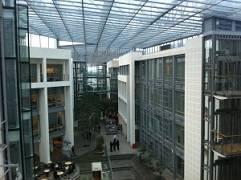December 2, 2014
Green manifesto challenges next government to deliver low-carbon economy
 On the eve of the Autumn Statement, an influential business-led coalition of businesses, NGOs, industry associations and cross-party politicians has called on the next Parliament to tackle a range of environmental challenges affecting the UK economy and the built environment. The Aldersgate Group Manifesto identifies six target areas it says the next government must meet to build a growing, sustainable and resilient UK economy. It must accelerate the move to a competitive low carbon economy; prioritise energy and resource efficiency; improve our understanding and the state of our natural capital; equip the UK’s workforce with the right skills to benefit from the opportunities offered by the transition to a sustainable economy; increase financial flows towards low carbon and other environmental projects; and ensure the UK continues to benefit from progressive European environmental standards whatever the UK’s future relationship with the EU. More →
On the eve of the Autumn Statement, an influential business-led coalition of businesses, NGOs, industry associations and cross-party politicians has called on the next Parliament to tackle a range of environmental challenges affecting the UK economy and the built environment. The Aldersgate Group Manifesto identifies six target areas it says the next government must meet to build a growing, sustainable and resilient UK economy. It must accelerate the move to a competitive low carbon economy; prioritise energy and resource efficiency; improve our understanding and the state of our natural capital; equip the UK’s workforce with the right skills to benefit from the opportunities offered by the transition to a sustainable economy; increase financial flows towards low carbon and other environmental projects; and ensure the UK continues to benefit from progressive European environmental standards whatever the UK’s future relationship with the EU. More →























July 22, 2014
Corporate social reponsibility remains a vital part of the business armoury
by Mark Sait • Comment, Environment, Facilities management, Insight promotion